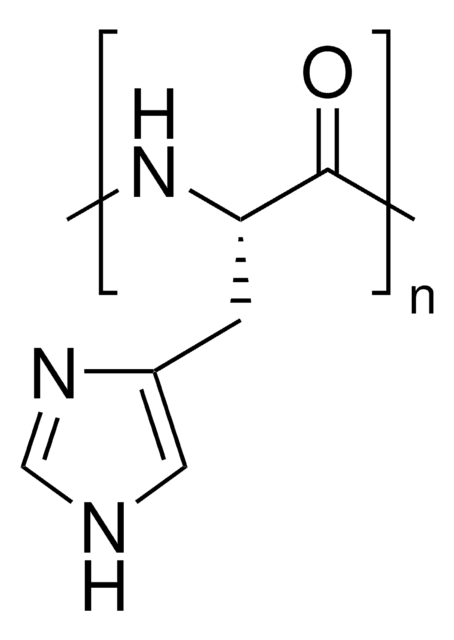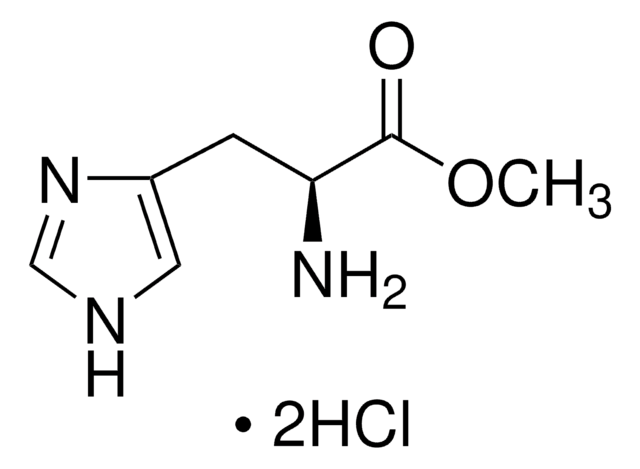H0750000
Histidine
European Pharmacopoeia (EP) Reference Standard
Synonym(s):
L-Histidine, (S)-2-Amino-3-(4-imidazolyl)propionic acid, NSC 137773
About This Item
Recommended Products
grade
pharmaceutical primary standard
API family
histidine
manufacturer/tradename
EDQM
mp
282 °C (dec.) (lit.)
application(s)
pharmaceutical (small molecule)
format
neat
storage temp.
2-8°C
SMILES string
N[C@@H](Cc1c[nH]cn1)C(O)=O
InChI
1S/C6H9N3O2/c7-5(6(10)11)1-4-2-8-3-9-4/h2-3,5H,1,7H2,(H,8,9)(H,10,11)/t5-/m0/s1
InChI key
HNDVDQJCIGZPNO-YFKPBYRVSA-N
Looking for similar products? Visit Product Comparison Guide
General description
For further information and support please go to the website of the issuing Pharmacopoeia.
Application
Biochem/physiol Actions
Packaging
Other Notes
Related product
Storage Class
11 - Combustible Solids
wgk_germany
WGK 1
flash_point_f
Not applicable
flash_point_c
Not applicable
Choose from one of the most recent versions:
Certificates of Analysis (COA)
It looks like we've run into a problem, but you can still download Certificates of Analysis from our Documents section.
If you need assistance, please contact Customer Support.
Already Own This Product?
Find documentation for the products that you have recently purchased in the Document Library.
Customers Also Viewed
Protocols
Separation of L-Alanine; Glycine; L-Valine; L-Leucine; L-Isoleucine; L-Proline; L-Methionine; L-Serine; L-Threonine; L-Phenylalanine; L-Aspartic acid; L-4-Hydroxyproline; L-Cysteine; L-Glutamic acid; L-Asparagine; L-Lysine; L-Glutamine; L-Histidine; L-Tyrosine; L-Tryptophan; L-Cystine
Our team of scientists has experience in all areas of research including Life Science, Material Science, Chemical Synthesis, Chromatography, Analytical and many others.
Contact Technical Service






